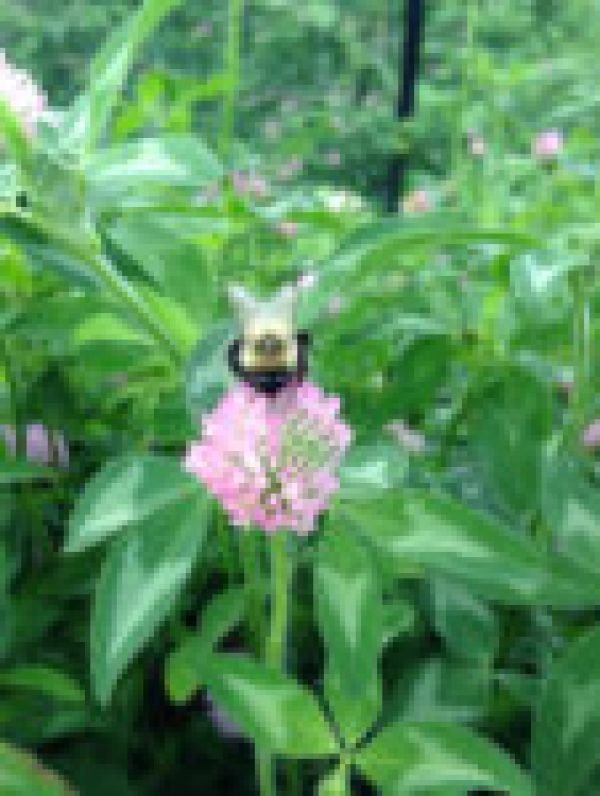As the global human population grows, and as pollinators continue to suffer declines caused by everything from habitat loss to pathogens, regulators need to widen pesticide risk assessments to protect not just honeybees but other species from bumblebees to solitary bees, said environmental sciences professor Nigel Raine, holder of the Rebanks Family Chair in Pollinator Conservation.
“There is evidence that our dependency on insect-pollinated crops is increasing and will continue to do so as the global population rises,” said Raine, co-author of all three papers recently published in the journal Environmental Entomology.
With growing demands for crop pollination outstripping increases in honeybee stocks, he said, “Protecting wild pollinators is more important now than ever before. Honeybees alone simply cannot deliver the crop pollination services we need.”
Continue reading at University of Guelph
Image via University of Guelph


